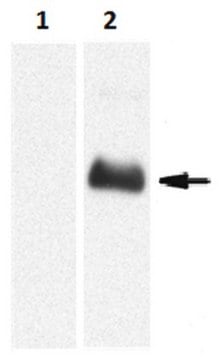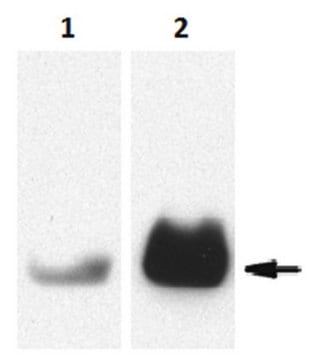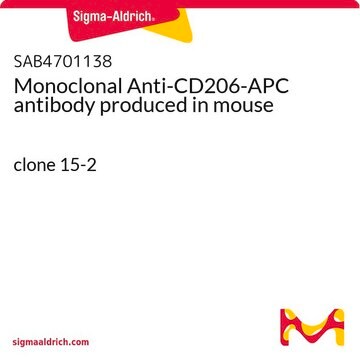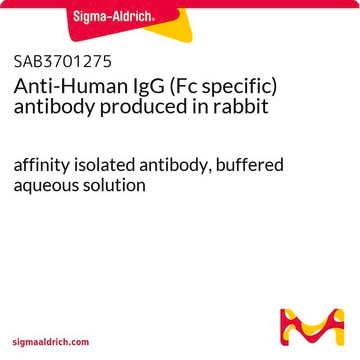MABF973
Anti-Proteinase 3/PR3 Antibody, clone MCPR3-3
clone MCPR3-3, from mouse
Sinónimos:
Myeloblastin, AGP7, C-ANCA antigen, Leukocyte proteinase 3, Neutrophil proteinase 4, NP-4, P29, PR-3, PR3, Wegener autoantigen
About This Item
Productos recomendados
origen biológico
mouse
Nivel de calidad
forma del anticuerpo
purified antibody
tipo de anticuerpo
primary antibodies
clon
MCPR3-3, monoclonal
reactividad de especies
human
técnicas
ELISA: suitable
flow cytometry: suitable
western blot: suitable
isotipo
IgG1κ
Nº de acceso NCBI
Nº de acceso UniProt
Condiciones de envío
wet ice
modificación del objetivo postraduccional
unmodified
Información sobre el gen
human ... PRTN3(5657)
Descripción general
Especificidad
Inmunógeno
Aplicación
Inflammation & Immunology
Inflammation & Autoimmune Mechanisms
Western Blotting Analysis: 2-8 µg/mL from a representative lot detected 5 µg of purified human neutrophil PR3 under non-reducing condition, while greatly reduced reactivity was seen upon sample reduction (Courtesy of Amber Hummel, Mayo Clinic, Rochester, MN).
Flow Cytometry Analysis: A representative lot bound immobilized recombinant human PR3 via a distinct epitope than those recognized by clone MCPR3-2 and MCPR3-7 (Cat. No. MABT340 and MABT403, respectively) as determined by FACS analysis of bead-based competition binding assay (Silva, F., et al. (2010). J. Autoimmun. 35(4) 299-308).
Flow Cytometry Analysis: A representative lot bound recombinant human PR3-, but not murine PR3-, coated Talon-beads as determined by FACS analysis. (Silva, F., et al. (2010). J. Autoimmun. 35(4) 299-308).
ELISA Analysis: A representative lot was immobilized on well surface and employed to capture recombinant human PR3, followed by affinity pull-down of PR3 autoantibodies (anti-neutrophil cytoplasmic antibodies or ANCA) from patients serum samples by the captured PR3 and the subsequent detection of the bound ANCA by alkaline phosphatase-conjugated goat anti-human IgG. (Silva, F., et al. (2010). J. Autoimmun. 35(4) 299-308; Sun, J., et al. (1998). J. Immunol. Methods. 211(1-2):111-123).
Calidad
Isotyping Analysis: The identity of this monoclonal antibody is confirmed by isotyping test to be IgG1κ.
Descripción de destino
Forma física
Almacenamiento y estabilidad
Otras notas
Cláusula de descargo de responsabilidad
¿No encuentra el producto adecuado?
Pruebe nuestro Herramienta de selección de productos.
Código de clase de almacenamiento
12 - Non Combustible Liquids
Clase de riesgo para el agua (WGK)
WGK 1
Punto de inflamabilidad (°F)
Not applicable
Punto de inflamabilidad (°C)
Not applicable
Certificados de análisis (COA)
Busque Certificados de análisis (COA) introduciendo el número de lote del producto. Los números de lote se encuentran en la etiqueta del producto después de las palabras «Lot» o «Batch»
¿Ya tiene este producto?
Encuentre la documentación para los productos que ha comprado recientemente en la Biblioteca de documentos.
Nuestro equipo de científicos tiene experiencia en todas las áreas de investigación: Ciencias de la vida, Ciencia de los materiales, Síntesis química, Cromatografía, Analítica y muchas otras.
Póngase en contacto con el Servicio técnico








